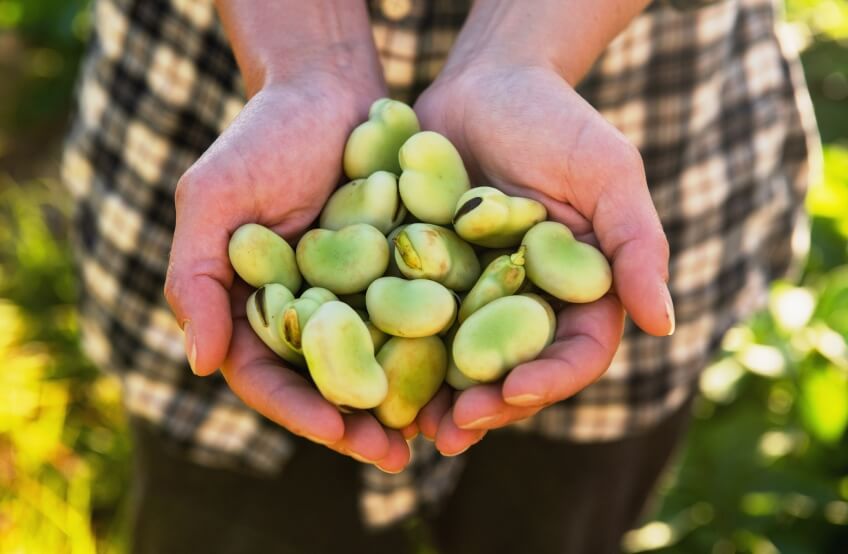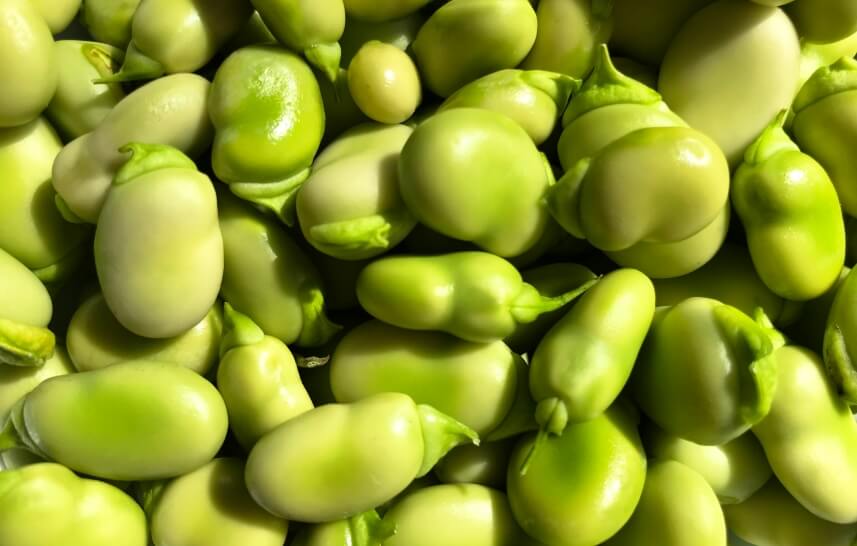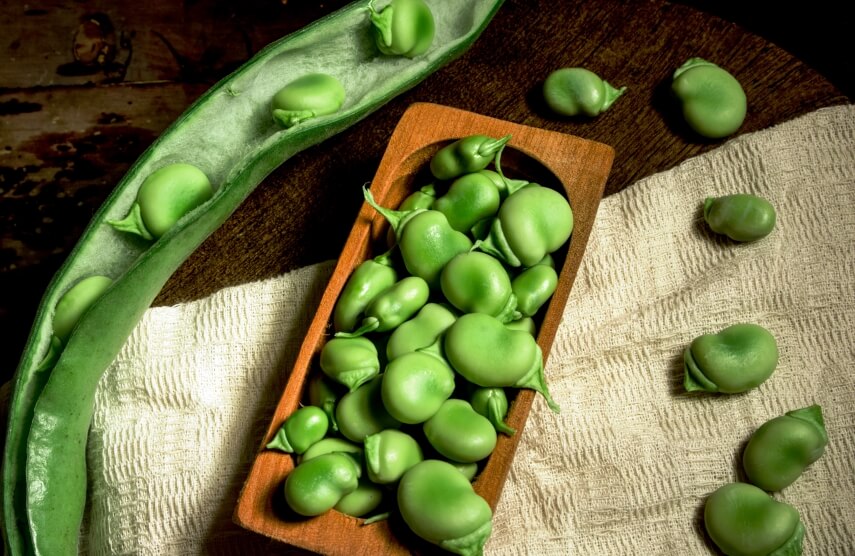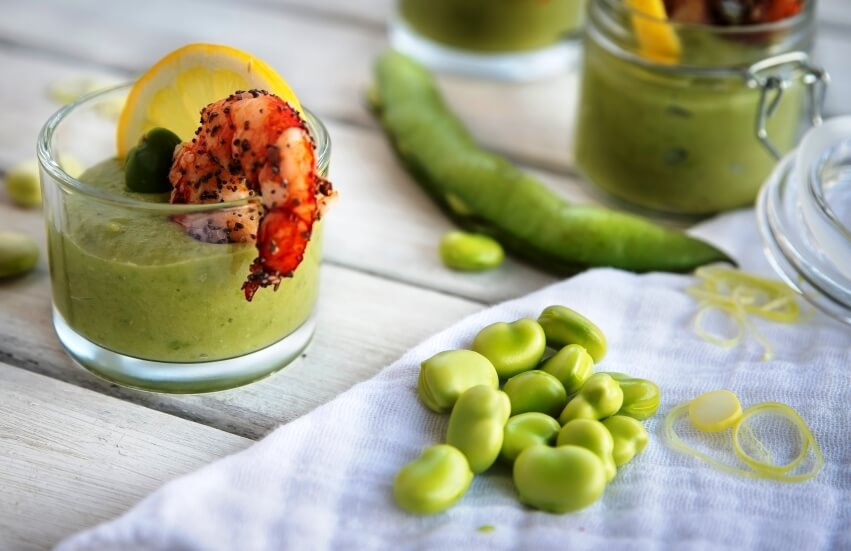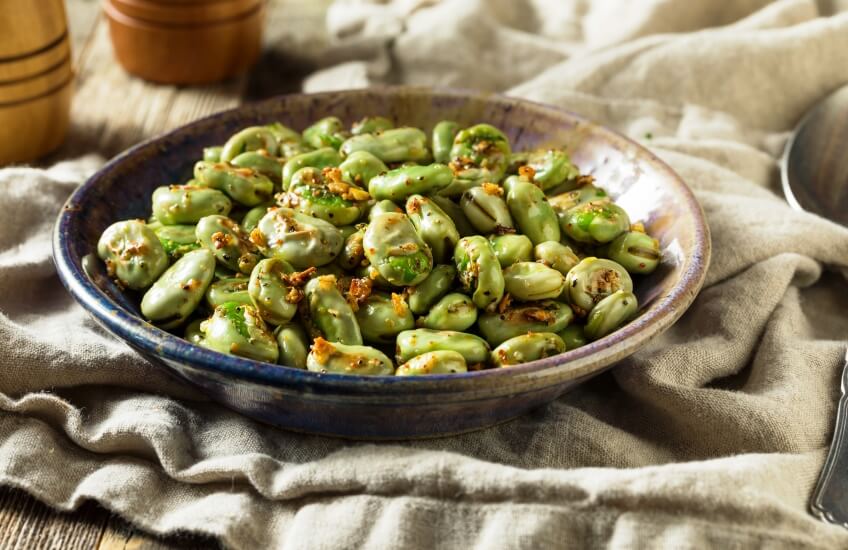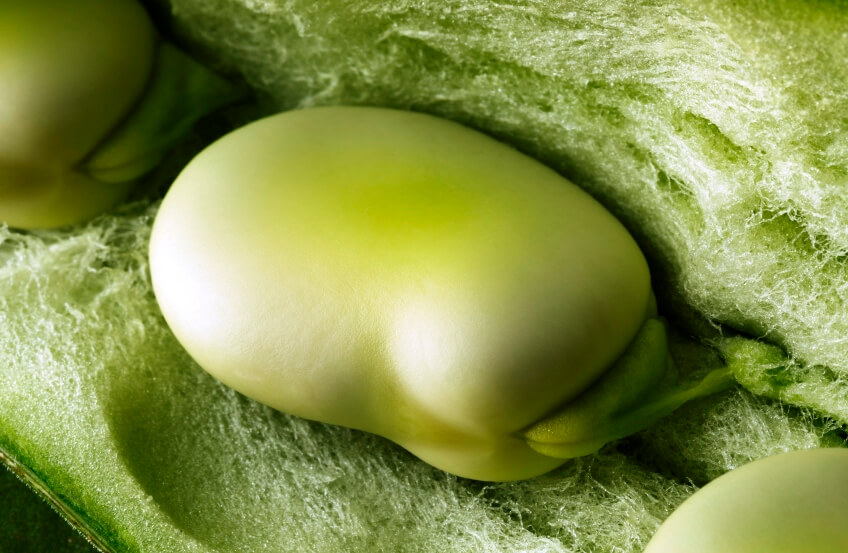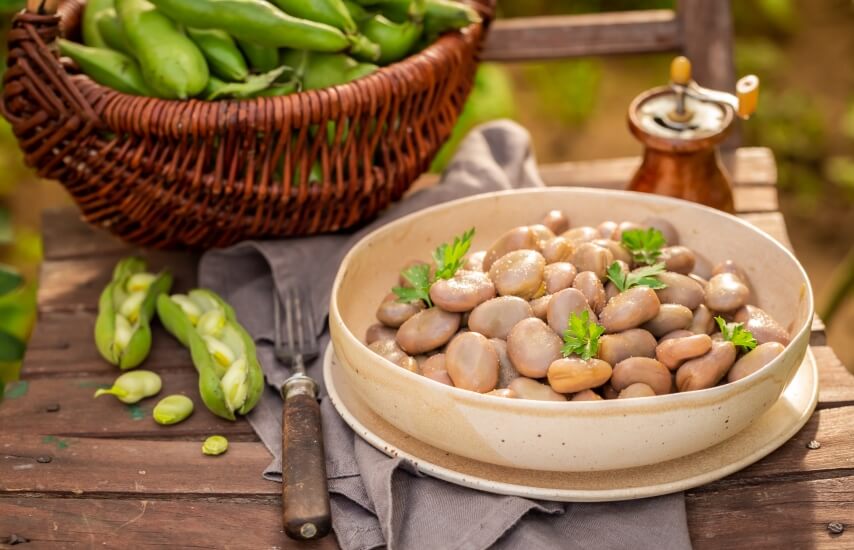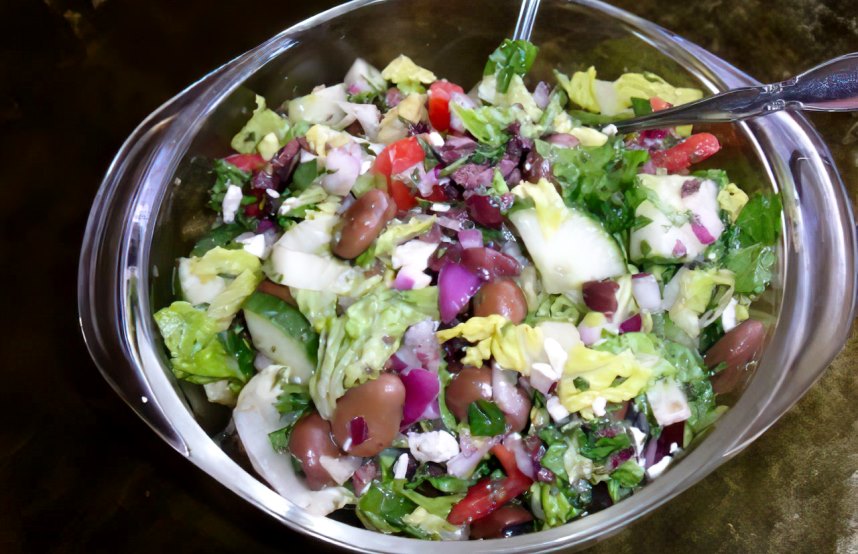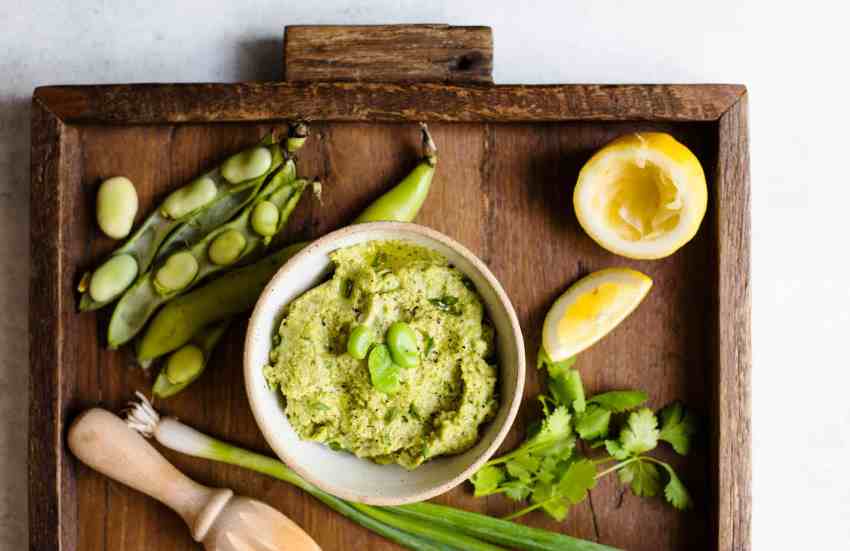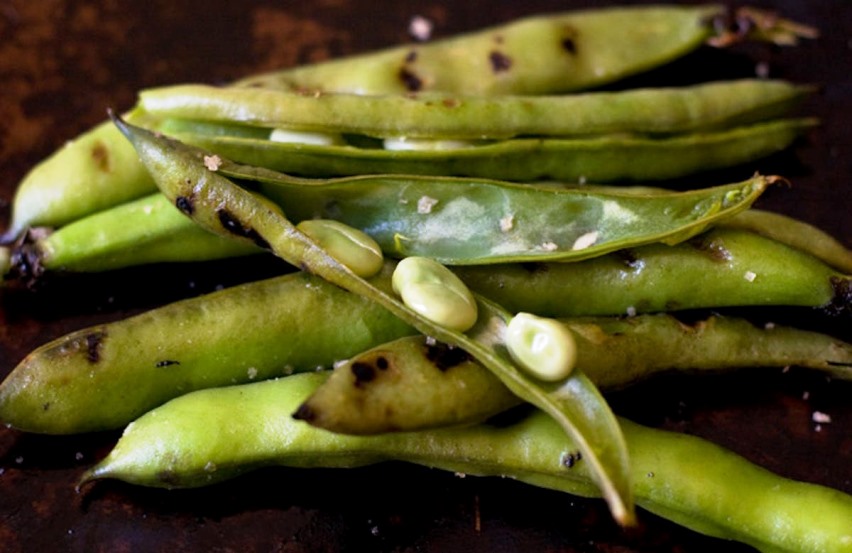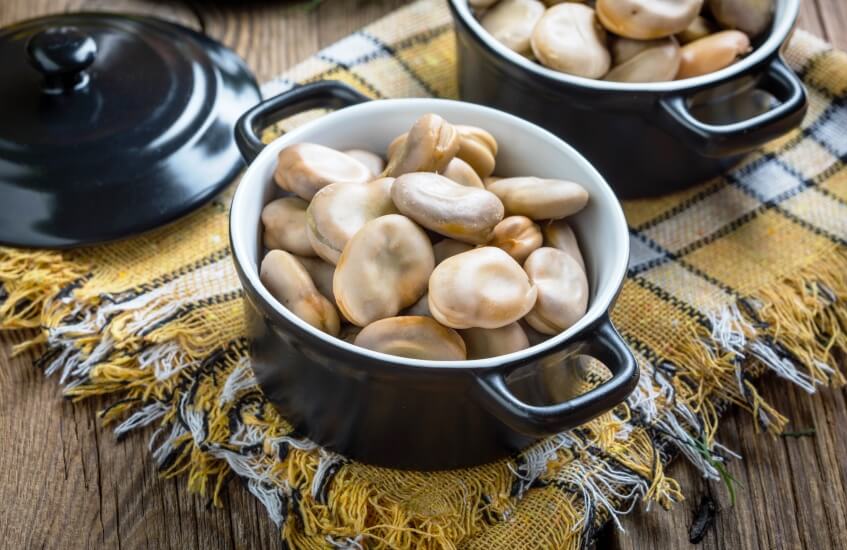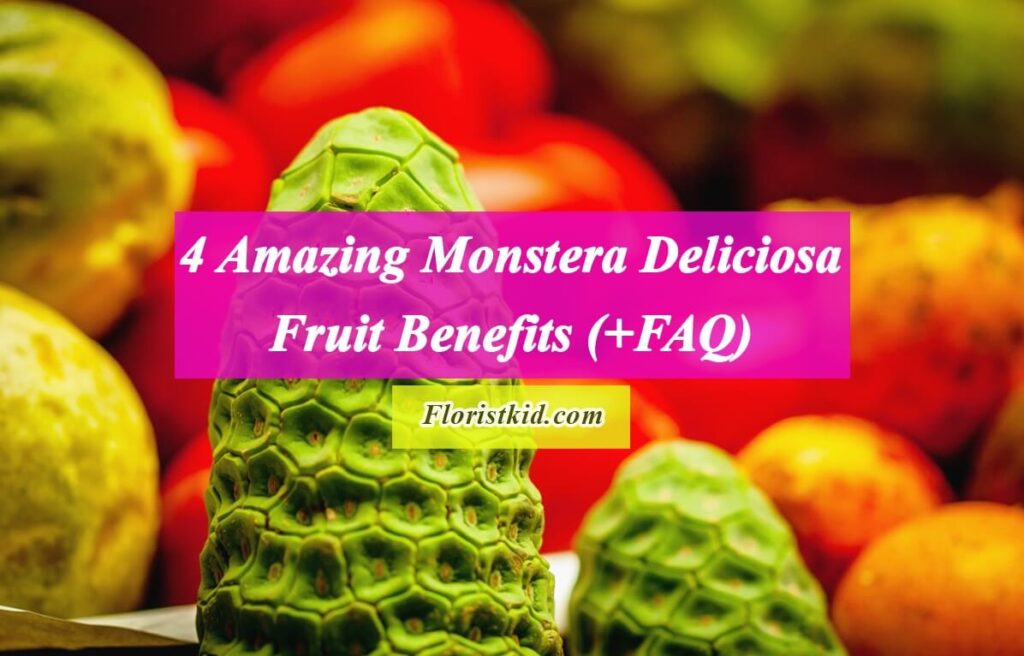Fava beans or faba beans (Vicia faba), also known as broad beans, have been a staple in various cuisines for thousands of years. These versatile legumes not only add a rich flavor and creamy texture to dishes but also offer a lot of health benefits. From providing essential nutrients to promoting heart health, fava beans are a nutritional source worth incorporating into your diet. In this article, we explore the health benefits of fava beans, potential side effects, and various culinary applications for incorporating them into your diet.
If you are interested in this topic, you can also read
<<Benefits Of Burning Bay Leaves >> and <<Goldenrod Benefits>> articles.
Health Benefits Of Fava Beans
Heart Health
Incorporating fava beans into your diet can positively impact heart health. The high fiber content helps lower cholesterol levels, reducing the risk of heart disease. Additionally, fava beans contain compounds like flavonoids and antioxidants that support cardiovascular health by reducing inflammation and oxidative stress [1, 2, 3].
Blood Sugar Control
Fava beans have a low glycemic index, meaning they cause a slower and more gradual rise in blood sugar levels compared to high-glycemic foods. This makes them an excellent choice for individuals looking to manage blood sugar levels, especially those with diabetes or insulin resistance [4].
Weight Management
Due to their high fiber and protein content, fava beans can help promote satiety and prevent overeating. Including fava beans in meals can contribute to feelings of fullness and satisfaction, making it easier to maintain a healthy weight [5].
Antioxidant Properties
Fava beans contain a variety of antioxidants, including flavonoids and polyphenols, which help combat oxidative stress and reduce inflammation in the body. These antioxidants play a crucial role in protecting cells from damage caused by harmful free radicals, thereby reducing the risk of chronic diseases such as heart disease, cancer, and neurodegenerative disorders [6, 7].
Fava Beans Nutrition
Fava beans boast an impressive array of essential nutrients, making them a valuable addition to any diet. Let’s explore the nutritional profile of fava beans and discover why they are considered a powerful nutritional food.
Proximate nutritional composition of fava bean [8]
| Nutrient | Amount (g/100 g DM) |
|---|---|
| Protein | 27.99 |
| Ash | 3.40 |
| Fat | 1.57 |
| Moisture content (%) | 12.3 |
| Total dietary fiber | 13.80 |
| Mineral | Amount (mg/100 g DM) |
| Zinc | 4.18 |
| Magnesium | 101.55 |
| Calcium | 172.65 |
| Iron | 5.48 |
| Potassium | 1220.45 |
| Total phenol | 387.52 (mg GAE/100 g) |
Protein
Fava beans are renowned for their high protein content, making them an excellent plant-based protein source for vegetarians and vegans. Just one cup of cooked fava beans provides approximately 13 grams of protein, helping to meet daily protein needs for muscle repair, growth, and overall body function. Including fava beans in meals can be especially beneficial for individuals looking to boost their protein intake without relying on animal products [9].
Fiber
Fiber is another standout nutrient found abundantly in fava beans. Fava beans are considered an exceptional source of dietary fiber, aiding in digestion and promoting bowel regularity. Fiber not only helps prevent constipation but also supports gut health by nourishing beneficial gut bacteria. Additionally, the high fiber content of fava beans contributes to feelings of fullness and can assist in weight management by curbing appetite and reducing calorie intake [10].
Vitamins And Minerals
Fava beans are packed with essential vitamins and minerals that play crucial roles in maintaining overall health and well-being. Here are some key nutrients found in fava beans:
Folate
Fava beans are particularly rich in folate, also known as vitamin B9, with one cup providing over 100% of the recommended daily intake. Folate is essential for DNA synthesis and cell division, making it especially important during periods of rapid growth and development, such as pregnancy [11].
Iron
Iron is vital for transporting oxygen throughout the body and preventing iron deficiency anemia. Fava beans contain a significant amount of iron, with one cup supplying about 14% of the recommended daily intake for adults.
Potassium
Fava beans are a good source of potassium, a mineral that plays a key role in regulating blood pressure, muscle function, and fluid balance within the body.
Magnesium
Magnesium is involved in over 300 biochemical reactions in the body, including energy production, muscle contraction, and nerve function. Fava beans provide a notable amount of magnesium, contributing to overall health and vitality.
Low In Fat And Calories
Despite their nutritional richness, fava beans are relatively low in fat and calories, making them a nutritious addition to a balanced diet, especially for those watching their calorie intake. One cup of fava beans contains approximately 188 calories and less than 1 gram of fat, making them a satisfying and guilt-free option for those seeking nutrient-dense foods [12].
Fava Beans Benefits For Male
Beyond their delicious taste and creamy texture, fava beans offer a host of health benefits that are particularly advantageous for men. Here is a unique benefit that fava beans can offer to men’s wellness.
Testosterone Support
Maintaining optimal testosterone levels is essential for men’s overall health and vitality, as testosterone plays a key role in muscle growth, bone density, libido, and mood regulation. Fava beans contain nutrients like zinc and magnesium, which are involved in testosterone production and regulation. Zinc, in particular, is a crucial mineral for testosterone synthesis and is commonly found in high concentrations in fava beans. Including zinc-rich foods like fava beans in the diet can help support healthy testosterone levels in men [13].
Fava Beans Benefits For Female
Fava beans offer a myriad of health benefits that are particularly advantageous for women. Let’s explore the unique benefits that fava beans can offer to women’s wellness.
Folate For Reproductive Health
Fava beans are an excellent source of folate, a B vitamin that plays a crucial role in reproductive health, especially during pregnancy. Adequate folate intake is essential for preventing neural tube defects and promoting healthy fetal development. By including fava beans in their diet, women can ensure they are getting a sufficient amount of folate to support a healthy pregnancy and reduce the risk of birth defects [14].
Iron-Rich For Energy And Vitality
Iron deficiency is common among women, particularly during menstruation, pregnancy, and breastfeeding, due to increased iron requirements. Fava beans are a rich source of iron, a mineral essential for the production of red blood cells and the transport of oxygen throughout the body. Incorporating fava beans into meals can help women maintain optimal iron levels, preventing fatigue, weakness, and other symptoms of iron deficiency anemia [15, 16].
Hormonal Balance
Hormonal balance is essential for women’s overall health and well-being, influencing mood, energy levels, metabolism, and reproductive function. Fava beans contain nutrients like zinc and magnesium, which are involved in hormone regulation and production. Zinc, in particular, plays a crucial role in maintaining hormonal balance and supporting reproductive health. By including zinc-rich foods like fava beans in their diet, women can support optimal hormonal function and overall well-being [17].
Fava Beans Side Effects
Like many foods, fava beans may cause side effects in some individuals, particularly those with certain medical conditions or sensitivities. While fava beans offer numerous health benefits, it is essential to be aware of potential side effects to ensure safe consumption. In this section, we assess some of the possible side effects of fava beans and who may be at risk.
Hemolytic Anemia In Individuals With G6PD Deficiency
One of the most well-known side effects of fava beans is the risk of hemolytic anemia in individuals with glucose-6-phosphate dehydrogenase (G6PD) deficiency. G6PD deficiency is a genetic disorder that affects red blood cells ability to function properly. When individuals with G6PD deficiency consume fava beans, certain compounds in the beans can trigger the destruction of red blood cells, leading to hemolytic anemia. Symptoms of hemolytic anemia may include fatigue, shortness of breath, pale skin, and jaundice [18].
Allergic Reactions
While rare, some individuals may be allergic to fava beans and experience allergic reactions upon consumption. Symptoms of a fava bean allergy may include itching, hives, swelling of the face or throat, difficulty breathing, abdominal pain, nausea, vomiting, and diarrhea. Individuals with known legume allergies, such as soybean or peanut allergies, may be at a higher risk of being allergic to fava beans [19].
Interference With Monoamine Oxidase Inhibitors (MAOIs)
Fava beans contain high levels of a compound called tyramine, which can interact with monoamine oxidase inhibitors (MAOIs), a type of medication used to treat depression. Consuming fava beans while taking MAOIs can lead to a sudden and dangerous increase in blood pressure, known as a hypertensive crisis. Individuals taking MAOIs should avoid consuming fava beans and other foods high in tyramine to prevent this potentially life-threatening reaction [20].
Gastrointestinal Discomfort
Some individuals may experience gastrointestinal discomfort, such as bloating, gas, and abdominal pain, after consuming fava beans. This may be due to the beans’ high fiber content, which can be difficult for some people to digest, especially if they are not accustomed to consuming fiber-rich foods. Gradually increasing fiber intake and ensuring adequate hydration can help mitigate gastrointestinal discomfort associated with fava bean consumption [21].
Interference With Thyroid Function
Fava beans contain compounds called goitrogens, which can interfere with thyroid function by inhibiting the uptake of iodine by the thyroid gland. While consuming moderate amounts of fava beans is unlikely to cause thyroid problems in most individuals, those with existing thyroid conditions, such as hypothyroidism or iodine deficiency, may be more sensitive to the effects of goitrogens and should exercise caution when consuming fava beans [22].
How To Eat Fava Beans?
Versatile Culinary Ingredient
Fava beans can be incorporated into a wide range of dishes, adding flavor, texture, and nutritional value. They can be enjoyed boiled, steamed, roasted, or pureed and added to salads, soups, stews, and pasta dishes. In some cuisines, such as Middle Eastern and Mediterranean, fava beans are a staple ingredient in traditional recipes like ful medames and falafel.
Fava beans can be enjoyed in a variety of delicious ways. From soups and salads to dips and main dishes, there are countless ways to incorporate fava beans into your meals. Whether you are a seasoned cook or new to fava beans, here are some tips and recipes to help you make the most of this flavorful ingredient.
Selecting And Preparing Fava Beans
Before diving into recipes, it is essential to know how to select and prepare fresh fava beans [23]:
Selecting Fresh Beans
Look for fresh fava beans with firm, plump pods that are free of blemishes or discoloration. Avoid beans that feel too soft or have black spots, as they may be past their prime.
Shelling
To access the edible beans inside, you will need to shell fresh fava beans. Simply snap off the stem end of the pod and then gently squeeze the pod to release the beans. Repeat this process for each pod.
Removing The Outer Skin
After shelling, blanch the beans in boiling water for about 1-2 minutes, then transfer them to an ice bath to cool. Once cooled, you can easily remove the tough outer skin by squeezing each bean gently between your fingers.
Now that you have prepared your fava beans, let’s explore some delicious ways to enjoy them [24, 25, 26]:
Fava Bean Salad
Ingredients:
– Shelled and peeled fava beans
– Cherry tomatoes, halved
– Cucumber, diced
– Red onion, thinly sliced
– Fresh herbs (such as parsley, mint, or basil), chopped
– Feta cheese, crumbled (optional)
– Lemon juice
– Extra virgin olive oil
– Salt and pepper to taste
Instructions:
- In a large bowl, combine the shelled and peeled fava beans, cherry tomatoes, cucumber, red onion, and fresh herbs.
- Drizzle with lemon juice and extra virgin olive oil, then season with salt and pepper to taste.
- Toss gently to combine, then top with crumbled feta cheese if desired. Serve chilled.
Fava Bean Salad- Source: food.com
Fava Bean Dip (Ful Medames)
Ingredients:
– Shelled and peeled fava beans
– Garlic, minced
– Lemon juice
– Tahini
– Ground cumin
– Extra virgin olive oil
– Salt to taste
– Optional toppings: chopped parsley, paprika, or olive oil drizzle
Instructions:
- In a food processor, combine the shelled and peeled fava beans, minced garlic, lemon juice, tahini, ground cumin, and a drizzle of extra virgin olive oil.
- Blend until smooth and creamy, adding more olive oil or lemon juice if needed to achieve the desired consistency.
- Season with salt to taste, then transfer the dip to a serving bowl.
- Garnish with chopped parsley, a sprinkle of paprika, or a drizzle of olive oil before serving. Serve with pita bread, crackers, or fresh vegetables for dipping.
Fava Bean Dip – Source: healthynibblesandbits.com
Grilled Fava Beans
Ingredients:
– Shelled and peeled fava beans
– Extra virgin olive oil
– Salt and pepper to taste
– Optional: garlic powder, smoked paprika, or grated Parmesan cheese
Instructions:
- Preheat a grill or grill pan over medium-high heat.
- In a bowl, toss the shelled and peeled fava beans with olive oil, salt, pepper, and any additional seasonings of your choice.
- Place the seasoned fava beans directly on the grill or grill pan, spreading them out in a single layer.
- Grill for 4-5 minutes, stirring occasionally, until the fava beans are charred and tender.
- Remove from the grill and transfer to a serving platter. Sprinkle with grated Parmesan cheese if desired before serving.
Grilled fava beans – Source: 101cookbooks.com
Precautions
While fava beans offer numerous health benefits, it is essential to note that some individuals may be allergic to them. People with G6PD deficiency, a genetic disorder affecting red blood cells, should avoid fava beans as they can trigger a severe reaction called hemolytic anemia.
Conclusion
Fava beans are not only delicious but also incredibly nutritious, offering a wide range of health benefits. From supporting heart health and blood sugar control to aiding in weight management, these versatile legumes deserve a place on your plate. Whether enjoyed as a side dish, incorporated into salads, or blended into dips, fava beans are a flavorful addition to any diet, providing both culinary delight and nutritional value.


